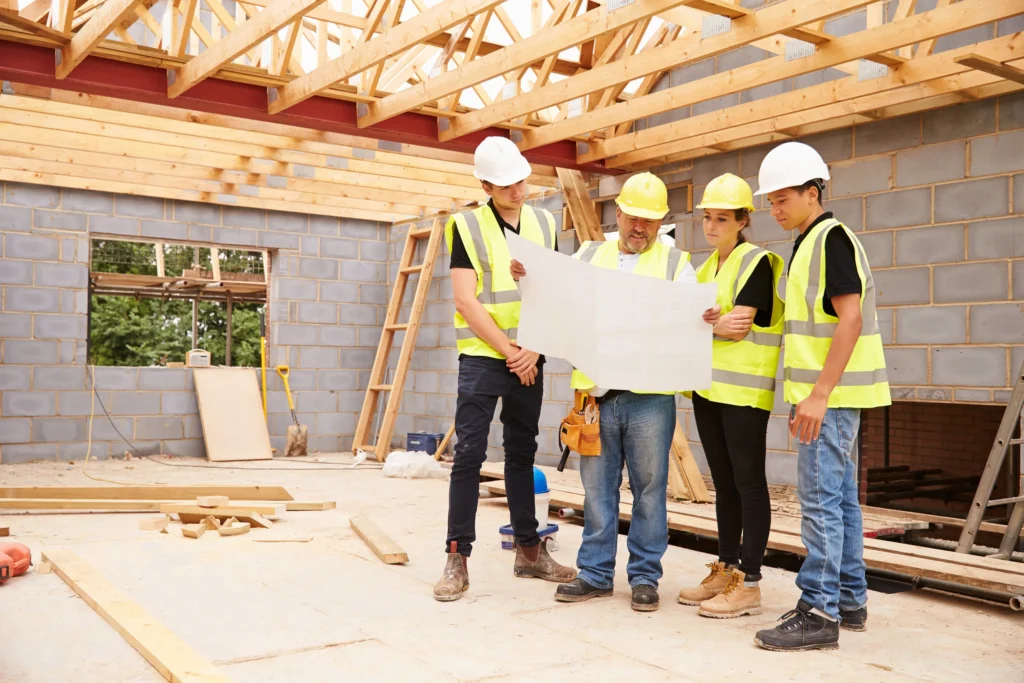In order to restore affordability and increase access to homeownership, new residential building is essential given the almost four million homes that are now lacking in the U.S. The Top Metros for New Construction are the cities that are stepping up and offering the finest mix of availability, affordability, sustainability, and demand for newly constructed homes, according to a recent Realtor.com research.
Four major guidelines were used by Realtor.com to assess the 100 largest metropolitan areas in the U.S:
- Buyer desire for new construction based on views per listing and median time on market
- Relative climate risk differential
- New home price premiums over existing houses
- The share of listings that were new homes
“Our top metros for new construction are places where builders are delivering much-needed inventory at price points that reflect local demand,” said Danielle Hale, chief economist at Realtor.com. “With nearly half of the for-sale homes in some of these metros being new construction and often being sold at or below the cost of existing homes, buyers in these areas have a real chance to find homeownership with high-quality, newly built homes at prices they can afford.”
Homebuyers are most likely to find reasonably priced, move-in-ready homes for sale in the top 10 metro areas where builders are stepping up to fulfill local buyer needs.
The top 10 metros include:
- Fayetteville-Springdale-Rogers, AR
- Boise City, ID
- Nashville-Davidson–Murfreesboro–Franklin, TN
- McAllen-Edinburg-Mission, Texas
- Portland-South Portland, ME
- Madison, WI
- Greenville-Anderson-Greer, SC
- Austin-Round Rock-San Marcos, Texas
- Charlotte-Concord-Gastonia, NC-SC
- Raleigh-Cary, NC
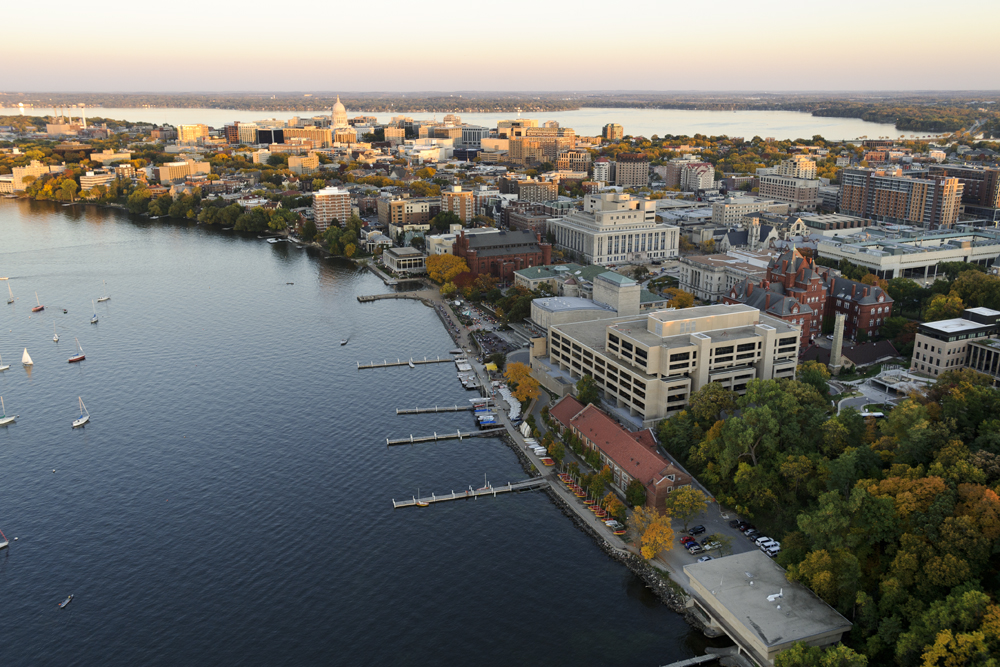
Since many current homeowners are staying put and mortgage rates are still high, new building has become an important source of inventory for today’s buyers.
Newly constructed homes currently account for more than 40% of for-sale listings in several markets, such Fayetteville, AR, and Raleigh, NC. These homes are frequently priced lower or comparable to older homes; in fact, in four of the top ten metro areas, new homes are priced at or below the median price of existing homes. In addition, new construction offers energy efficiency, contemporary design, and, in many major cities, a lower relative risk of natural disasters like heat, floods, and wildfires than older homes.
Construction Hotspots Boom in Southern, Midsize Cities
With more than 40% of listings being newly constructed homes—and priced lower than existing homes—Fayetteville, Arkansas, the top-ranked market, stands out for its affordability and quantity of new homes for sale. At $399,717, the median newly constructed home in the metro is even less expensive than the median existing home, which is already reasonably priced at $418,375.
Whether they are first-time buyers, remote professionals looking for space, or families establishing roots in a rapidly expanding city, Fayetteville offers home purchasers a unique blend of quality, value, and lifestyle thanks to its booming local economy, robust employment market, and affordable cost of living.
At more than 51% of all for-sale listings, Boise, Idaho, the only Western metro area to make the list and the second-ranked city overall, leads the country in new construction listings. In addition to being more common, these homes are also more reasonably priced, with a median listing price of $540,743 as opposed to $559,517 for existing homes. With climate-smart designs that are less likely to catch fire than older homes, Boise’s new building also received good marks for sustainability.
Nashville, TN, Austin and McAllen, Texas, round out the top five as notable Southern regions where rising new construction inventories and robust local job development are enabling more purchasers in those areas to access more affordable routes to homeownership.
“Our data shows that strong local job markets, builder investment and affordability are converging in these metros to create opportunity,” said Joel Berner, Senior Economist at Realtor.com. “When communities reduce zoning barriers and support sustainable building practices, it’s a win for affordability, livability and long-term resilience. These are the places helping to close the gap between supply and demand and giving families a shot at the American dream.”
Every region of the nation is represented in the top 10, from Portland, ME, in the Northeast to Madison, WI, in the Midwest, even though the South tops the list. Due to their comparatively low cost of living, many of these metro areas are midsize cities or college towns, which attracts both new residents and investment from sectors like manufacturing and technology. As a result, home builders are entering the market with reasonably priced, environmentally friendly homes that are made to satisfy local consumers’ demands and the expanding housing market.
“The only way to ease the nation’s housing affordability crisis is to increase the housing supply and local, state and federal governments all have an important role to play,” said Buddy Hughes, Chairman of the National Association of Home Builders and a home builder and developer from Lexington, N.C. “We need to enact policies at all levels of government that will eliminate burdensome regulations, promote careers in the skilled trades and alleviate permitting roadblocks to allow builders to construct more attainable, affordable housing.”
Top Metros Boasting the Best Benefits
No. 1: Fayetteville-Springdale-Rogers, AR
Inventory score (Out of 100): 97
Price score: 94.9
Sustainability score: 79.8
Hotness score: 62.6
Northwest Arkansas, a rapidly expanding area that is home to numerous industries that support a strong local economy, is the top new-construction metro area for 2025. The Fayetteville metro area is exceptionally affordable for homeowners due to its strong job market and extremely low cost of living. At approximately $399,717, the median share of newly constructed homes in the metro is even less expensive than the median existing home, which is already reasonably priced at an estimated $418,375. Fayetteville tops our two most heavily weighted ranking categories, inventory and price, with new builds accounting for 43.1% of all homes for sale and priced 4.5% lower than existing properties.
In addition to being widely available and reasonably priced, Fayetteville’s new construction is situated sustainably. Fayetteville has a strong sustainability rating since the metro’s new home stock has substantially lower flood risk scores than its current housing stock. According to the ranking system above, the Northwest Arkansas market’s market hotness is its weakest feature; new homes there receive only an average number of Realtor.com page views when compared to other metro areas, and they are listed for an average amount of time (72 days).
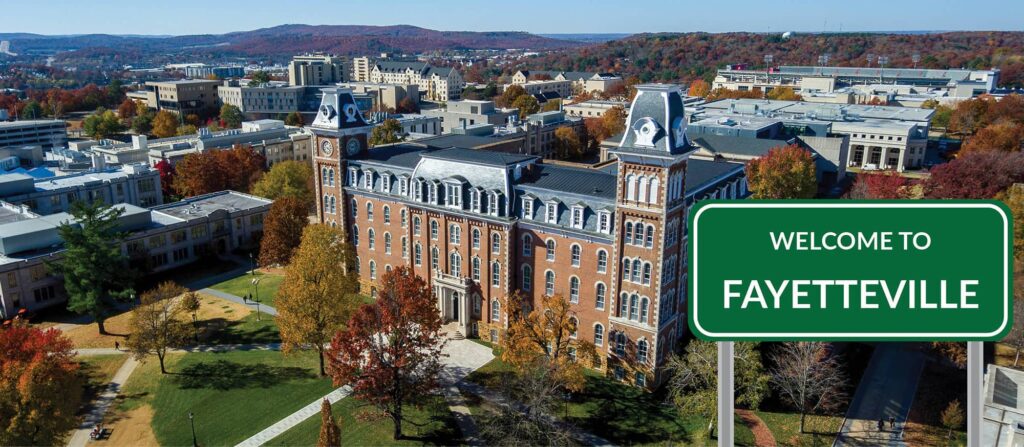
No. 2: Boise City, ID
Inventory score: 100
Price score: 92.9
Sustainability score: 91.9
Hotness score: 23.2
With an estimated 51% of all for-sale listings being freshly constructed, the Boise metro region—the only one from the West on the list—leads all metros included in this ranking. In addition to having more listings than resale homes, new construction also has lower median prices, with a median listing price of $540,743 vs $559,517 for existing properties. Buyers are drawn to Boise because of its strong job market and relative affordability, particularly in sectors like technology and government. Additionally, home builders in the metro have a lot of new construction options for those looking to buy in the area.
The fact that new construction in Boise has a far reduced fire risk than existing residences in the metro area accounts for the high sustainability score, demonstrating that builders have continued to prioritize sustainability in the area. The slowing housing market in recent years is the single factor preventing Boise from being at the top of the rankings. New builds receive below-average ratings for the quantity of page views per listing, despite having an average period on the market (66 days).
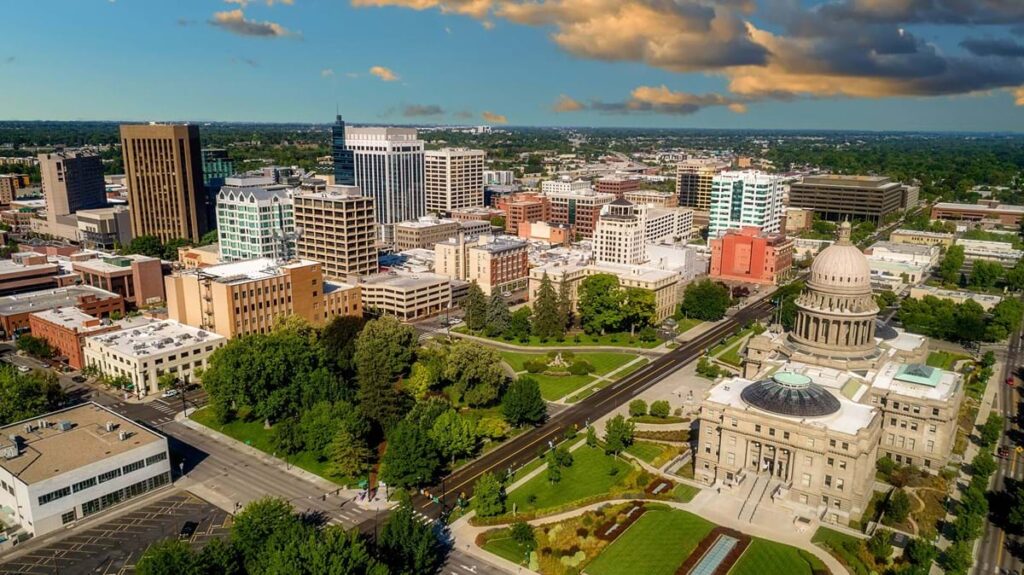
No. 3: Nashville-Davidsons-Murfreesboro-Franklin, TN
Inventory score: 94.9
Price score: 78.8
Sustainability score: 54.5
Hotness score: 70.7
Top-tier new development activity and a strong job market may be found in the Nashville metro area. Even though the inventory of older homes has been increasing over the past few years, 37% of the for-sale listings are new construction. At $511,132, the median listing price of these new constructions is slightly more than that of existing homes, at an estimated $540,686. Nashville is also a major target area for builders and a center of economic activity in the South.
Nashville’s new construction is marginally less vulnerable to heat hazards than the metro’s stock of existing residences, but it is somewhat more vulnerable to fire hazards, earning it a middle-of-the-pack sustainability score. The fact that there aren’t many changes shows that new building in the area is basically as sustainable as the existing stock of dwellings. Nashville’s housing market is also doing well, with new construction moving at a faster rate than normal (52 days).
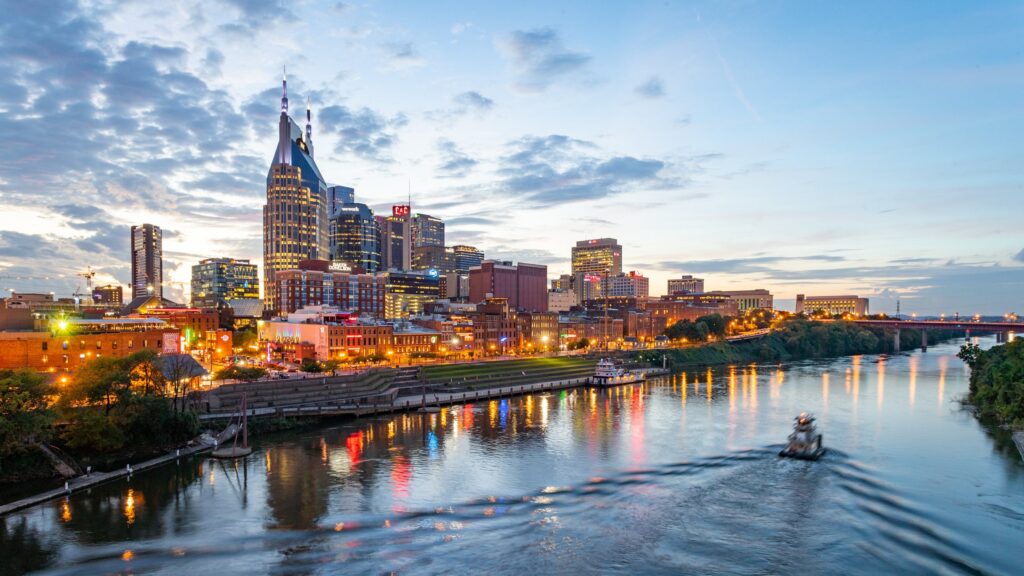
To read the full report, click here.


